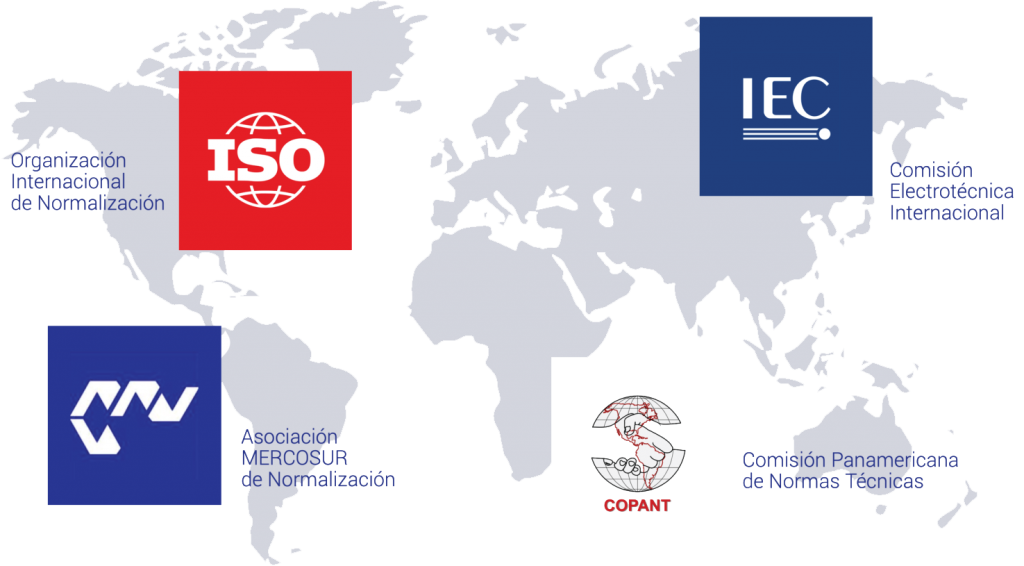What are you looking for?
Select the desired category to go to the advanced search.
Standardization
A standard is a document established by consensus of a subject matter group of experts who agree on the minimum conditions that a product, service or management system must have.
Standards are everywhere and protect us all.
Did you know that we are the only national standardization body in charge of studying and publishing standards that favor and facilitate the economic and social development of our country?
In addition, we are official representatives in international standardization processes in:

Each country has its own standardization body. In Argentina, we were recognized by the Government to carry out this mission. Currently, there are more than 270 active technical organizations where representatives from production, consumption, science and technology, education and government participate.
We have published over 9.000 standards based on consensus, focusing on a balance of interests to arrive at documents that are representative of society as a whole.
As a technical authority, we play a fundamental role in providing advice to the various public bodies on their different levels: national, provincial and municipal.
Some standards, both IRAM national as well as international, set up coded identification systems, either of manufacturers of certain products, or of issuers, for example, of bank cards.
In order to ensure a coordination, issuance and single registration of the holders of these codes, the bodies responsible for the publication of such standards appoint a specialized entity with competence and resources to organize and keep these registrations.
As the national standardization body in Argentina and a member of ISO, we keep some of these registrations. You are invited to learn more about them.
ISO/IEC 7812 International Standard specifies a numbering system for the identification of the card issuers along with the application and registration procedures.
The IIN consists of the first digits of the number of any bank, credit or purchase card, etc., which uniquely identifies the issuer entity. The IIN code is provided by the American Bankers Association (ABA).
As an ISO member, IRAM has the exclusive management of the IIN codes before ABA for applicants from Argentina.
Please, submit your enquiry and get information on the fees and the steps required:
ISO 3780 International Standard establishes this code by which motor vehicle, towed vehicle, motorcycle and moped manufacturers are identified on a world-wide basis.
The WMI is the first three digits of the chassis number of any automotive that uniquely indicates the world region, country and manufacturer. The WMI code is assigned by the Society of Automotive Engineers (SAE).
As a member of ISO, we have exclusive management of WMI codes before SAE for applicants from Argentina.
Please, submit your enquiry and get information on the fees and the steps required:
IRAM 2187 Standard specifies a system to univocally identify the companies that manufacture bare electrical conductors used for overhead power lines, by means of filaments (according to quantity and colors).
At IRAM we keep this unique registry updated, which you can download here.
We can help you register an overhead power line conductor manufacturer and have it assigned the corresponding identification:
Standardization is the activity that, when addressing real or potential problems, seeks to identify and develop guidelines for improvement in multiple fields and for different audiences: organizations, businesses, public bodies and consumers.
Find out about the topics covered by standardization:
The systematic process of creation of a standard is performed through research bodies. Each panel of experts is focused on a particular subject and counts with the participation of producers, consumers and those responsible for watching over the general interest and caring for common good.
The whole process is conducted under the following principles:
Standards are meant for all and made among all of us.
Your participation is valuable.
Organizations joining our research bodies may gain multiple benefits:
Contact us and we will get back to you shortly.
IRAM members have benefits in the purchase of standards

Get in touch with us and we will answer your questions
Send